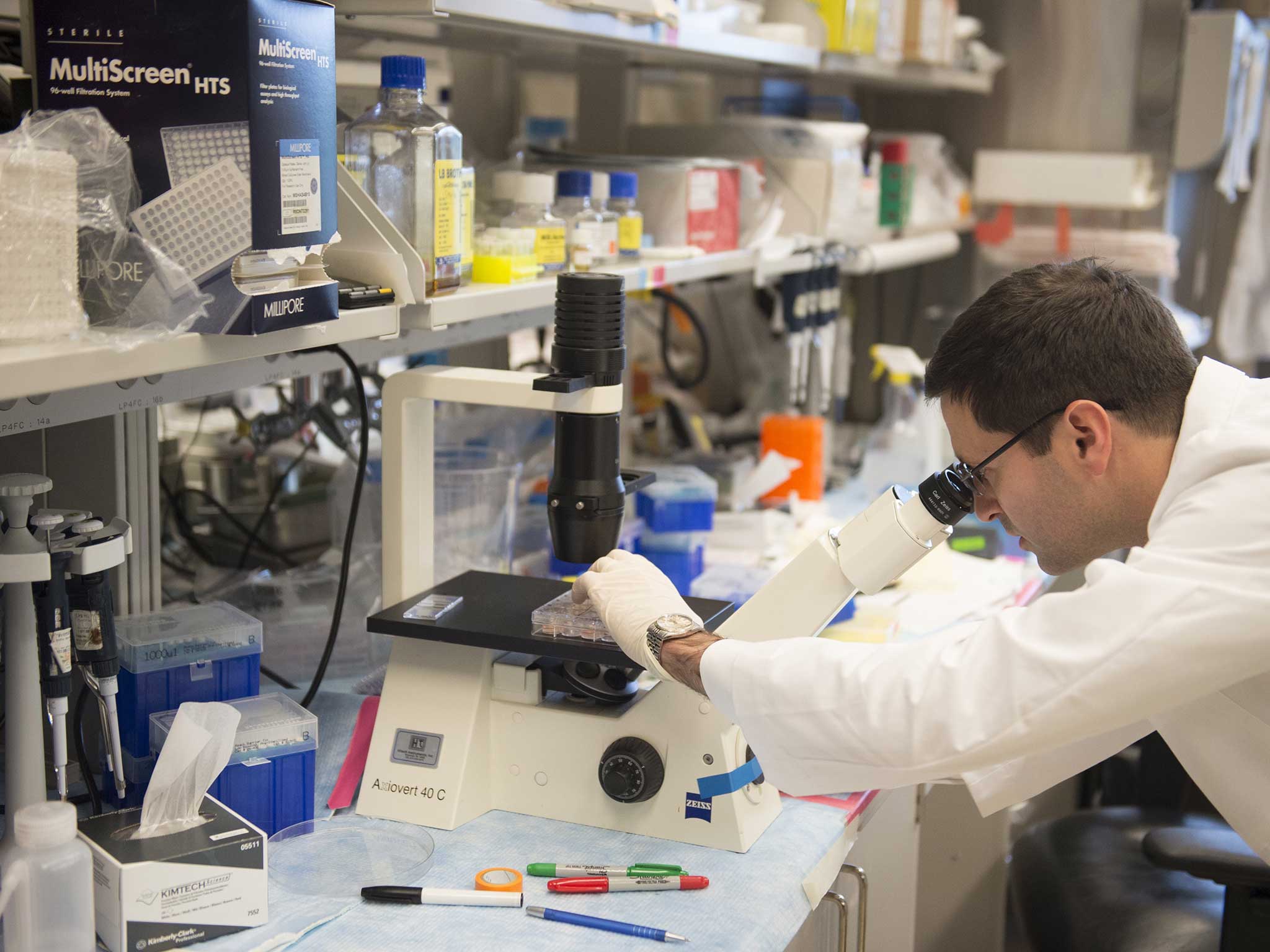Scientists attempt to artificially copy polio virus in major step towards eradicating virus
There are approximately 350 polio cases worldwide every year - but the disease can paralyse or even kill victims

Scientists are attempting to create a cure for polio by creating a synthetic version of the dealy disease.
Poliomyelitis, an infectious disease which can permanently paralyse or even kill its victims, affects approximately hundreds each year as efforts by international aid organisations show promise.
Scientists from the US and UK hope to create a safe vaccine by mimicking the viral genome, rather than having a tiny portion of the disease present in the vaccine.
Oxford University professor of Structural Biology Dave Stuart, a member of the team, said: "The idea of the synthetic vaccine is that it contains no genome - it's virus free”.
"So it's made, in a way, like a super-chemical, a complicated chemical, that assembles itself to look like the virus but has no way of ever replicating," he told BBC News.
The scientists are following on from their success with dealing with the Foot and Mouth outbreak, and Professor Stuart is hopeful about their prospects.
“Early results with polio are very promising, with synthetic particles being produced and evidence of successful stabilisation," he told Phys.org.
The project, sponsored by the World Health Organisation and the Bill&Melinda Gates Foundation, was announced at the American Association for the Advancement of Science in San Jose, California.
Although polio is close to being eradicated, recent years have seen some small resurgences – most notably in parts of Syria and Pakistan.
An eradication programme in the 1980s reduced polio cases worldwide by 99 per cent, but the last percentage has proved a difficult step to make.
The scientists hope by artificially replicating the virus – in effect removing its genetic machinery – they can avoid using a weakened version of the virus in the oral medication used today.
In a small number of cases the oral medication provokes a reaction in the patient’s gut which allows a reactivated virus to pass out of the body – and spread to other unvaccinated individuals.
Join our commenting forum
Join thought-provoking conversations, follow other Independent readers and see their replies
Comments
Bookmark popover
Removed from bookmarks